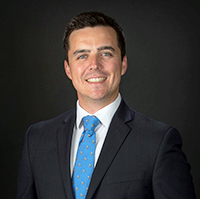
NLD Event Recap: Federal Court Practice Series

Ford, Walker, Haggerty & Behar, LLP
On Friday, July 9, 2022, the Honorable Linda Lopez of the United States District Court presented for the New Lawyer Division on some tips and tricks to use when operating in the federal courts.
One of Judge Lopez’s main points was to always check the local chamber rules before appearing in federal court. So before going any further, this is the link to Judge Lopez’s personal chamber rules as of June 16, 2022: Lopez Civil Chambers Rules.pdf (uscourts.gov).
There’s no excuse now to not have at least looked at them prior to your next hearing before Judge Lopez.
Background on Judge Lopez
Judge Lopez previously worked in Miami, Florida, handling criminal defense matters. She opened her own private practice in Miami after her time with a larger firm. Judge Lopez handled cases where she was retained by clients and those where she was appointed to help those unable to afford legal counsel. She later moved to San Diego and joined the Federal Defenders office in town. There, she helped indigent defendants charged with violations of the law. On Dec. 17, 2021, she was appointed to the United States District Court as a judge for the Southern District of California.
Filing Complaints in Federal Court
Before you file a complaint in federal court, heed Judge Lopez’s advice and be very aware of the different rules. These rules include the Federal Rules of Civil Procedure, the Court’s local rules, and the individual judge’s chamber rules. One or more parties may have a reason to take a case to federal court. If this happens to you, and you are unfamiliar with federal procedures, Judge Lopez recommends bringing someone into the case who has more experience in the federal court system.
As for the complaint itself, make things to the point and concise. Throwing the kitchen sink into a complaint won’t help you win, and could even cost your client the case. Judge Lopez recommends conferring with opposing counsel about your claims before filing in order to potentially resolve issues that you would have otherwise brought to the courts.
The big take away though is to be concise. If the Court wants more information from you or your client, they will ask.
Tips for Motion Practice
The courts at every level are backlogged with cases from the pandemic. Judge Lopez encourages us all to find ways to minimize unnecessary motion practice. The first step is to start by looking to the judge’s individual chamber rules before drafting. Most judges will give you a deadline for filing and some don’t require a meet and confer effort before filing.
Even if a meet and confer is not required, doing one still helps eliminate some of the unnecessary motion work and can alleviate the Court’s docket.
Start this process by simply making a phone call to opposing counsel rather than solely relying on emails. Judge Lopez suggested that the parameters of an email may lead us to be more formal and structured, whereas in person conversations or phone calls enable attorneys to connect on a different level and encourage issues to resolve.
A lawyer who wants to have oral argument on an issue needs to show good cause. But as Judge Lopez reminded, do not just plan to appear and argue the same things already argued in the papers. If you are granted oral argument, it is likely because the judge is seeking more information beyond what is in the papers.
San Diego is in a judicial emergency as there are more senior judges than there are active judges, and has more cases than other districts. With this in mind, judges may be more inclined to rule on a motion and not hear additional arguments.
Judicial Clerkships
The most important thing for clerkship applicants to consider is how much they really enjoy deep and intensive research and writing. If your strengths in the courtroom are oral argument, cross examining witnesses, or conducting depositions and not legal research and writing, then a judicial clerkship may not be the right fit for you. However, if you enjoy conducting intensive research, staying on top of current case law changes, and drafting lengthy motions, then applying for a clerkship may suit your skillset. Commonly, term clerks will move and try working for a different judge after one or two years.
Conclusion
Judge Lopez gave valuable information to attendees regarding the inner workings of one of the busiest federal courts in the country. Those in attendance gleaned practical insight for when it is their time to file a complaint, draft a motion, come in to make arguments, or when they want a career change. Through Judge Lopez’s conversation, those of us with our first federal court dates should now be better prepared.